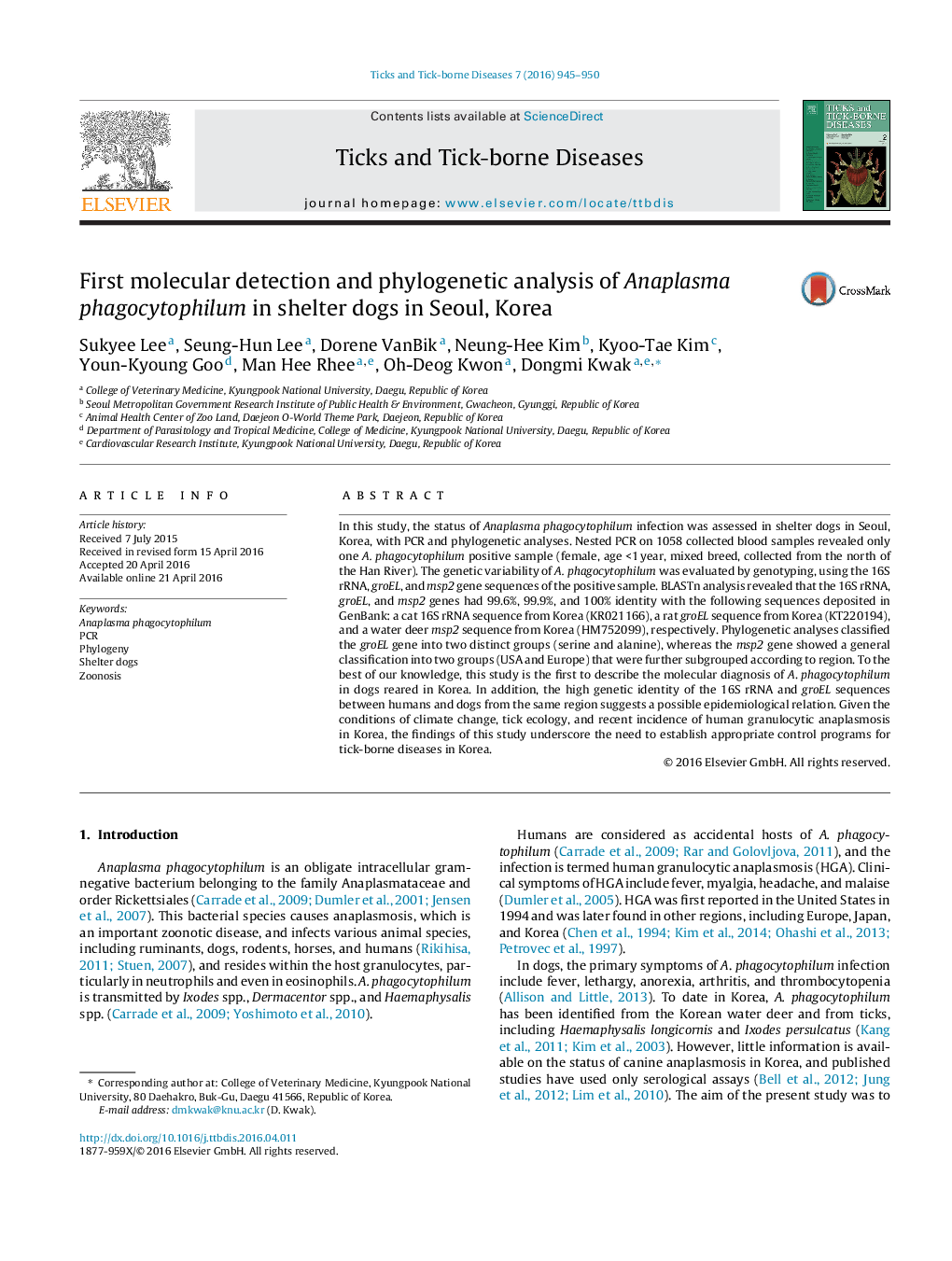| Article ID | Journal | Published Year | Pages | File Type |
|---|---|---|---|---|
| 5546414 | Ticks and Tick-borne Diseases | 2016 | 6 Pages |
In this study, the status of Anaplasma phagocytophilum infection was assessed in shelter dogs in Seoul, Korea, with PCR and phylogenetic analyses. Nested PCR on 1058 collected blood samples revealed only one A. phagocytophilum positive sample (female, age <1Â year, mixed breed, collected from the north of the Han River). The genetic variability of A. phagocytophilum was evaluated by genotyping, using the 16S rRNA, groEL, and msp2 gene sequences of the positive sample. BLASTn analysis revealed that the 16S rRNA, groEL, and msp2 genes had 99.6%, 99.9%, and 100% identity with the following sequences deposited in GenBank: a cat 16S rRNA sequence from Korea (KR021166), a rat groEL sequence from Korea (KT220194), and a water deer msp2 sequence from Korea (HM752099), respectively. Phylogenetic analyses classified the groEL gene into two distinct groups (serine and alanine), whereas the msp2 gene showed a general classification into two groups (USA and Europe) that were further subgrouped according to region. To the best of our knowledge, this study is the first to describe the molecular diagnosis of A. phagocytophilum in dogs reared in Korea. In addition, the high genetic identity of the 16S rRNA and groEL sequences between humans and dogs from the same region suggests a possible epidemiological relation. Given the conditions of climate change, tick ecology, and recent incidence of human granulocytic anaplasmosis in Korea, the findings of this study underscore the need to establish appropriate control programs for tick-borne diseases in Korea.
